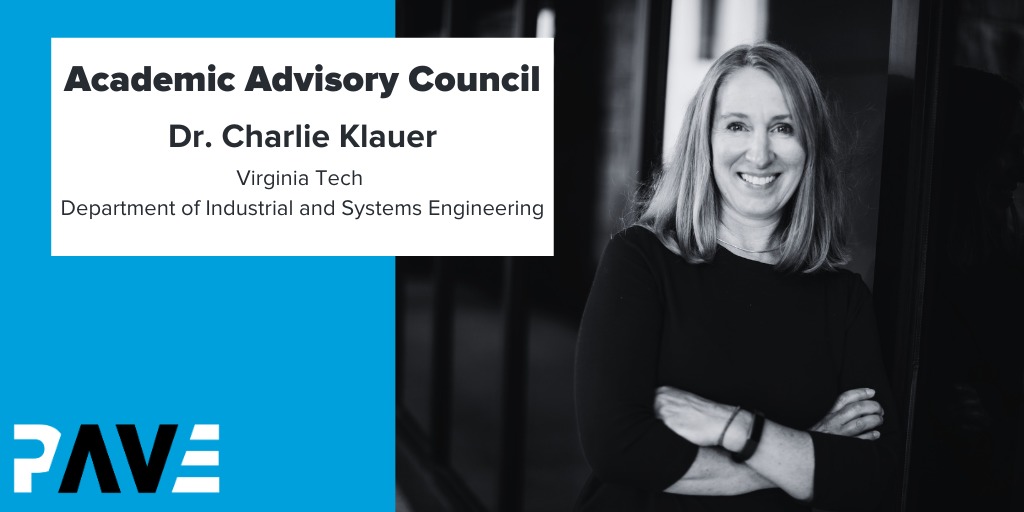About
Dr. Sheila “Charlie” Klauer is a research scientist and an Associate Professor in the Industrial and Systems Engineering Department at Virginia Tech. As a research scientist, she is the leader for the Applied Driver Assessment, Performance, and Training Group (ADAPT) at the Virginia Tech Transportation Institute (VTTI). Dr. Klauer has been working in transportation research since 1996. She recently authored papers that were published in the New England Journal of Medicine, Journal of Pediatrics, and Journal of the American Medical Association Pediatrics. Her primary research involves studying the impacts of automated driving systems on driving and pedestrian performance, and the effects of distraction and fatigue on driving, especially with regard to novice drivers.
PAVE: How does your work align with our mission to educate the public on AV technology and its promise?
My research has explored driver behavior when Automated Vehicles (AV) technologies are active and/or how drivers and other vulnerable road users, like pedestrians, interact with fully automated vehicles. What we are finding from this research is that driver and road user behavior is complex and the understanding of how these systems work is highly variable. In order to achieve the safety benefits of AVs, we need to ensure that drivers and road users alike have a solid understanding of AV technologies and that these technologies support drivers and road users in simple but also consistent and predictable ways. Training and educating the public is and always will be an important mission when it comes to ensuring that AV technologies save lives moving forward.
PAVE: What are the current barriers you see in public acceptance of automated vehicles?
Several recent studies have shown that while drivers would like information and training on AVs, they still often rely on trial and error and first-hand experience with the systems. This is similar to how most people learn to drive, which may give them a false sense of security. However, this type of learning takes time, allowing a longer time period in which there is a higher chance of fatal and serious injuries due to misuse and/or mistakes made using these systems. If key information were available to drivers in ways that were readily available, useful, and more effective, I believe that we could make critical strides toward making sure that the safety benefits of AV technologies are realized more rapidly as drivers and road users gain exposure to these systems.

